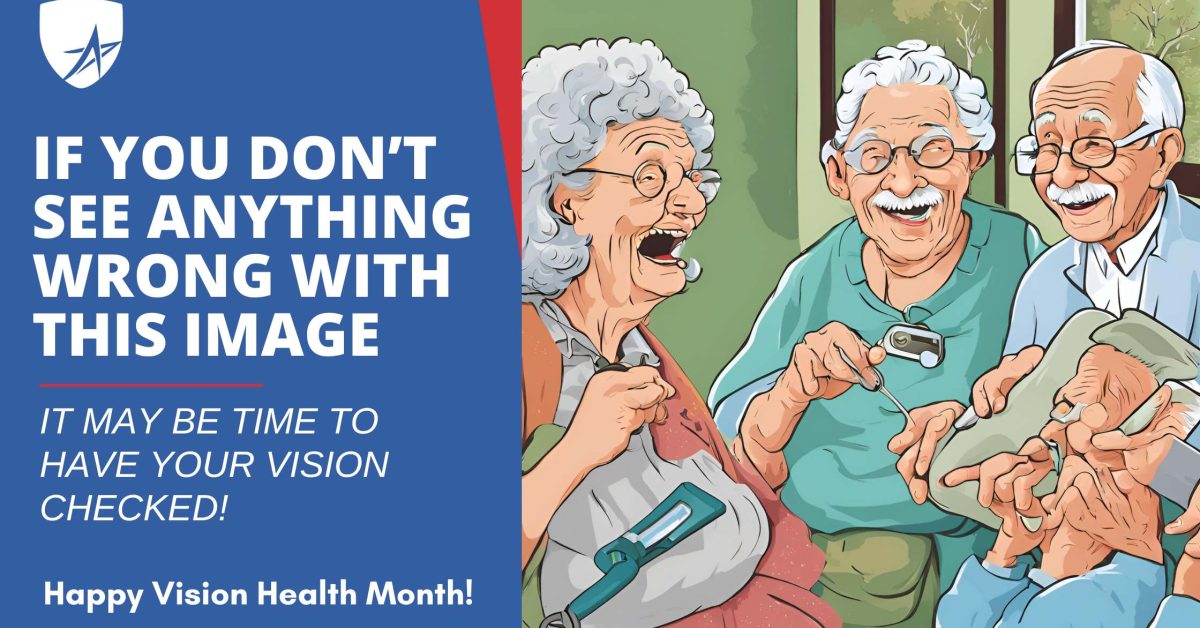Exploring what’s covered under Medicare & your Vision care options
August is the perfect time to focus on your eye health because it’s National Vision Health Month! As we age, keeping an eye on our vision is more important than ever, especially when considering what Medicare covers—and what it doesn’t. Let’s look into why regular eye exams are a clear choice for maintaining good vision, and how Medicare plays a role in your eye care.
How Medicare Looks at Vision Coverage
While Medicare is a great help for many healthcare needs, it doesn’t always focus on vision care. Here’s what Medicare typically covers—and what it doesn’t—when it comes to your eyes:
- Routine Eye Exams: Original Medicare (Part A and Part B) does not cover routine eye exams for glasses or contact lenses. However, if you have a specific condition like diabetes or are at high risk for glaucoma, Medicare Part B covers some preventive and diagnostic exams.
- Eyeglasses and Contact Lenses: Medicare generally doesn’t cover the cost of glasses or contact lenses unless they are required following cataract surgery. In that case, Medicare will help cover the cost of one pair of glasses or contact lenses.
Treatment for Eye Conditions: Medicare Part B covers medically necessary treatments for certain eye conditions like cataracts, glaucoma, and macular degeneration. This includes doctor visits and some outpatient procedures.
Exploring Vision Coverage Options
If you’re finding that Original Medicare doesn’t meet all your vision needs, you might want to look into additional coverage options:
- Medicare Advantage Plans: Many Medicare Advantage plans (Part C) offer extra benefits, including vision care, which might cover routine eye exams, glasses, and contacts. It’s essential to review each plan’s benefits to see if it fits your vision needs.
- Vision Insurance: Stand-alone vision insurance plans are another option. These plans typically cover routine eye exams, glasses, and contacts, and might offer discounts on other services. This can be a good option if your Medicare plan doesn’t provide sufficient vision coverage.
- Discount Programs: Some retailers and organizations offer discount programs for vision care, which can help reduce the cost of exams and eyewear. These might not provide as comprehensive coverage as insurance but can be useful if you need additional financial help.
Tips for Keeping Your Eyes Sharp
Keeping your eyes healthy goes beyond regular checkups. Here’s how to stay focused on your eye health:
- Eat Well: A healthy diet rich in eye-friendly vitamins and minerals can help you see well for years to come.
- Protect Your Vision: Sunglasses that block 100% of UV rays are a must when you’re outdoors. And if you’re into sports, don’t forget your protective eyewear!
- Quit Smoking: Smoking can cloud your vision by increasing the risk of age-related eye diseases. Quitting now is the clear choice for your eyes and overall health.
- Manage Chronic Conditions: Proper management of chronic conditions like diabetes and hypertension can keep your vision in focus.
- Stay Hydrated: Keep your eyes moist and see clearly by drinking plenty of water throughout the day.
Eye health is crucial for maintaining your independence and quality of life. Schedule your eye exam today and encourage your friends and family to do the same. By focusing on your vision health and understanding your Medicare options, you’ll enjoy clear sight and a higher quality of life for years to come. By prioritizing your eye health, you can enjoy clear vision and a higher quality of life for years to come. If you would like to explore stand-alone vision coverage, contact our office today so we can find you a plan that best supports your vision care needs.

